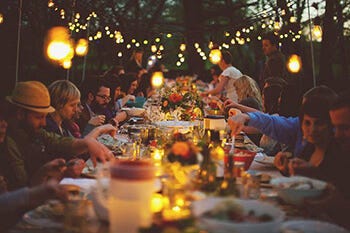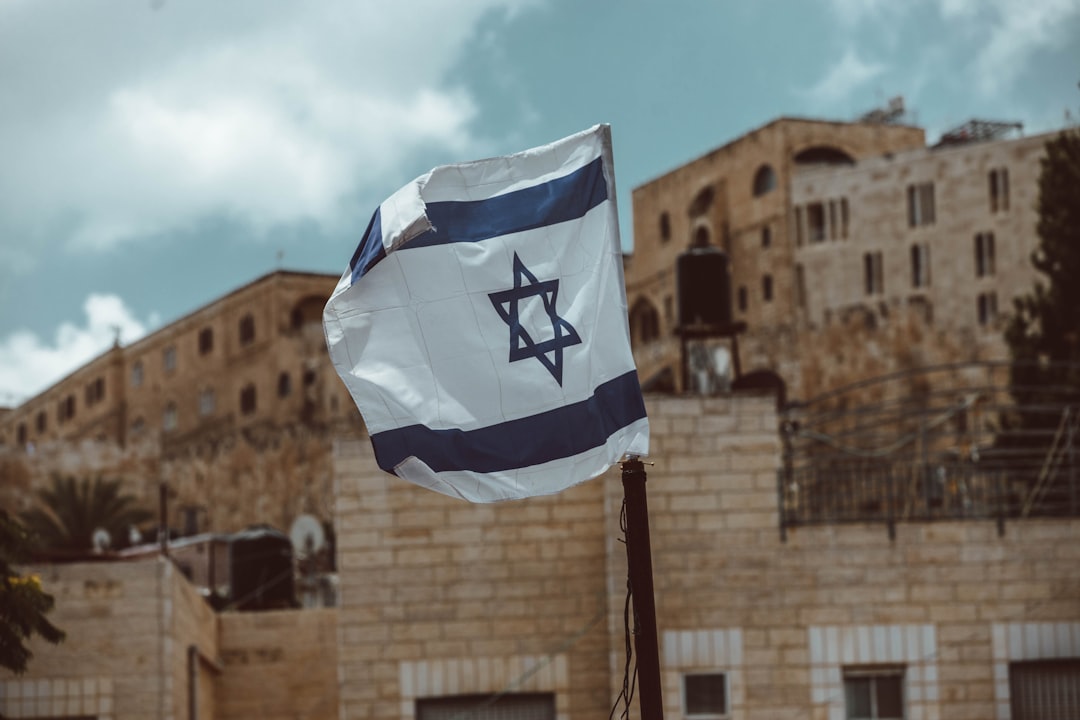Introduction
Christians have celebrated a variety of feast days throughout the centuries. Some movements have celebrated no feast days, other than the weekly Lord’s Day - for example, the Puritans, and the Church of Scotland. Others have celebrated a large number of feast days throughout the year, following a liturgical calendar. Let each be convinced in his own mind, with charity towards others (Romans 14:5).
I am convinced that our church should follow a simple calendar that celebrates the great days of the faith, and those celebrations should be characterized by feasting. In this article I want to demonstrate why this seems right to me. Secondly, I will lay out which feast days we ought to celebrate. Lastly, I will describe what this feasting should look like.
In Step With the Old
Feasts have always been at the center of God’s working. After all, the first command of Scripture was to feast:
Genesis 2:16 “You may surely eat of every tree of the garden . . .”
History will end with a great, restored Eden, and a feast at the center:
Revelation 19:9 And the angel said to me, “Write this: Blessed are those who are invited to the marriage supper of the Lamb.”
Those who are invited to that great feast are those who feast on Christ along the way:
John 6:53 So Jesus said to them, “Truly, truly, I say to you, unless you eat the flesh of the Son of Man and drink his blood, you have no life in you. 54 Whoever feeds on my flesh and drinks my blood has eternal life, and I will raise him up on the last day. 55 For my flesh is true food, and my blood is true drink. 56 Whoever feeds on my flesh and drinks my blood abides in me, and I in him. 57 As the living Father sent me, and I live because of the Father, so whoever feeds on me, he also will live because of me. 58 This is the bread that came down from heaven, not like the bread the fathers ate, and died. Whoever feeds on this bread will live forever.”
Thus we celebrate on the first Sunday of every month the Lord’s Table:
Matthew 26:26 Now as they were eating, Jesus took bread, and after blessing it broke it and gave it to the disciples, and said, “Take, eat; this is my body.” 27 And he took a cup, and when he had given thanks he gave it to them, saying, “Drink of it, all of you, 28 for this is my blood of the covenant, which is poured out for many for the forgiveness of sins. 29 I tell you I will not drink again of this fruit of the vine until that day when I drink it new with you in my Father’s kingdom.”
And this great feast of the Lord was prefigured by the feast of the Exodus and the Passover. After all, on the Transfiguration, Moses and Elijah wanted to discuss Jesus’ “exodus” (Luke 9:31), and on his cross, not one of his bones were broken (John 19:33):
Exodus 12:46 It shall be eaten in one house; you shall not take any of the flesh outside the house, and you shall not break any of its bones. 47 All the congregation of Israel shall keep it. [speaking of the Passover]
Of course, before Christ, Israel was commanded to enjoy great feasts. The three Great Feasts (summarized in Exodus 23:14-17) were:
The Passover (otherwise known as the Feast of Unleavened Bread and Firstfruits) - Exodus 12:1-2. As was already mentioned, in this feast Israel was to remember the Exodus, how God passed over their sins, all by His grace, and delivered them from slavery, into His dominion.
The Feast of Weeks (otherwise known as Pentecost or the Harvest Feast) - Leviticus 23:15-21; Deuteronomy 16:9-12. Celebrated 50 days after the Passover, this feast celebrated the wheat harvest in the spring.
The Feast of Tabernacles (or the Feast of Booths and the Feast of Ingathering) - Leviticus 23:33-43; Deuteronomy 16:13-15. This feast remembered Israel’s 40-year trek through the wilderness, and more centrally, how God dwelt among them, with them, in His tabernacle, providing for and preserving them.
It is no coincidence that that these major feasts map over to the three major moments in the life of Christ:
The Feast of Tabernacles > Christmas, when our Immanuel dwelt among us.
The Passover > Good Friday and Easter, when Christ our Passover Lamb was sacrificed, that we may be delivered from sin and death, unto life.
Pentecost > Pentecost, when God’s people were born again from above (just as Jesus had told Nicodemus - John 3:3), when the people of God became Christ’s firstfruits.
Christ is the fulfillment of God’s promises (2 Cor. 1:20). He succeeded where ethnic Israel failed. Thus God’s people in this age are those who are in him, by faith.1 Moreover, in every age, God seems to think that it is good for His people to feast in celebration of the great things He has done.
Which Great Things?
In my view, the church should feast on those days I’ve already mentioned:
Christmas
Good Friday/Easter
Pentecost
I add another day to these three because it so important, and because the Church has underemphasized it in recent generations: the Ascension. After all, God’s “favorite Bible verse”, Psalm 110:1,2 anticipates it:
Psalm 110:1 The LORD says to my Lord:
“Sit at my right hand,
until I make your enemies your footstool.”
At Pentecost, Peter declared to Jerusalem that this Psalm was fulfilled by Christ in his Ascension. And it was upon this truth that he made his truth-claim: that Jesus is more than the Christ, the Messiah, who saves - he is also Lord, period (Acts 2:36). This should remind us of the truth that Jesus says we are to believe, that is the basis for our fulfilling the Great Commission:
Matthew 28:18 “All authority in heaven and on earth has been given to me . . .”
So then, the Ascension is a pillar truth upon which all our service to Jesus now rests. We serve him in confidence that wherever we go, he is Lord.
Now I would add one more “feast,” and this addition is one part imitation, one part pragmatism, and one part “just cuz”: a “love feast,” celebrated in the doldrums of the first quarter of the year. It is imitation, because clearly the early church enjoyed “love feasts” (Acts 2:46; Jude 12; perhaps 1 Cor. 11:33-34). And it is pragmatic, because there are no other feasts during this time of the year. And it is “just cuz,” because, well, just because.
Should there be others? For instance, Thanksgiving? Is it good for Christians to stop and give gratitude to the Lord? Of course - why not? What about Palm Sunday? I could very easily be talked into that day being a feast day, too. But the four pillar days, in my view, are Christmas, Easter, the Ascension, and Pentecost.
Let’s Get This Party Started
So how should they be celebrated?
Well, if you haven’t caught on by now: with a feast. Sometimes that’s a special meal during the week (Christmas, Ascension), or it’s expected that every household with have their own feast and invite others (Easter, Pentecost). But regardless, we mean “feast”: friends and family sitting around the same table, enjoying good food and each other’s company, and all of it in joyful remembrance of and gratitude to the Lord.
Those two words point to a way of celebrating that we have largely lost. There used to exist a word, closely related to “solemn”, that comprehended how we think of “solemn”, and yet at the same time denoted a “celebration.” A weighty happiness, you might say. The best modern equivalent that I can think of is a graduation: it is both a solemn ritual and a happy, celebratory occasion. That’s the tone that we should aim for in these feasts: on the one hand, feeling the glorious weight of what God has done; and at the same time feeling a light joy that it is done.
You can capture something of this dual feeling in Nehemiah 8:9-12. Ezra has read the forgotten Law to the people, and it happens to be on the day of the Feast of Trumpets (Neh. 8:2). Then all the people wept and grieved, for how they had not kept the Law (9). But then Nehemiah reassures them - this day is “holy to our Lord” (10-11), which feels weighty. But because it is holy to God, the people must not weep, but must celebrate, by feasting (12).
This passage brings us to the heart of why God must want His people to celebrate:
Neh. 8:10 . . . for the joy of the LORD is your strength.
More than that, God is most glorified by His people’s joy:
Psalm 22:3 Yet you are holy,
enthroned on the praises of Israel.
Joy inherently points a bright finger on the object of the joy. So our joy in our God is both the thing that strengthens us and enables us to endure to the end, and it is the means by which God gets the most glory from our lives. What matters most is not the relative greatness of our sacrifices, but the greatness of the God for whom we sacrifice, portrayed in our joy.
Our God is a happy God, in Himself. Thus He rejoices as His people join Him in His own joy about Himself.
So then, lastly, there should be singing at these feasts: hearty, full-throated singing, that both remembers the cosmic truths at hand, and that incites us to deep-hearted joy.
“To God be the glory . . . Great things He has done! . . .”
This view is called “soft supercessionism.” I hold this view because of other in-your-face not-coincidences: why did Jesus choose twelve apostles? Why not three or seven? However, notice above that I did not say that the church “replaces” ethnic Israel. Instead, “soft supercessionism” believes three things at once: 1) that the church is God’s people in this age, not ethnic Israel; 2) this is because “Israel” is now Christ, and whoever is “in him”, by faith, and yet 3) God is not done with ethnic Israel and will “graft them back into” the one olive tree, at the end of time (Romans 11:23-24).
So called because of how often it is referenced in the New Testament, and for the crucial, pillar truths it undergirds.










